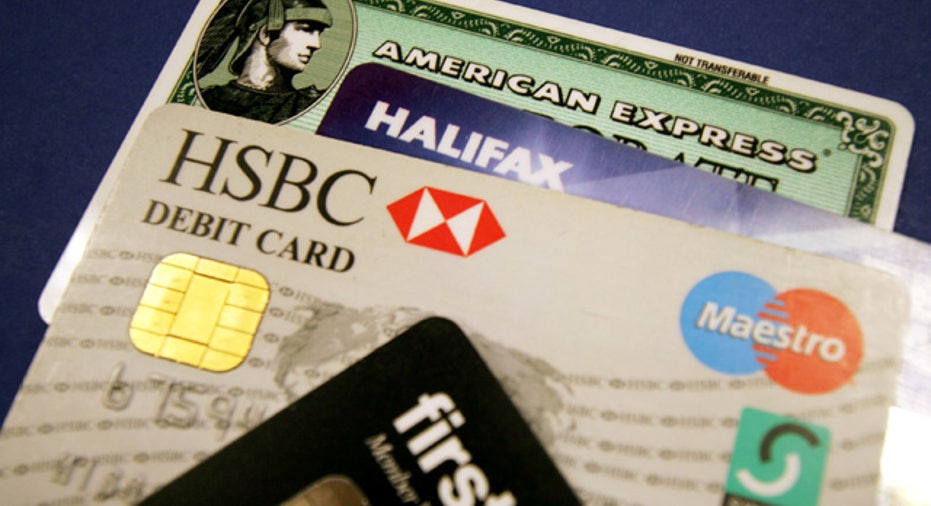Credit CARD Act Loophole Could Raise Your Rate

The Credit CARD Act of 2009 was enacted to curtail abusive practices by credit card issuers and protect consumers from out-of-control fees and interest rates that seemed to fluctuate daily. But is the CARD Act the firewall consumer advocates wanted, or just a new way to be completely confused by the fine print?
Well&both. There are definite wins for consumers, but the CARD Act isn't a complete success, according to John Ulzheimer, president of consumer education for SmartCredit.com.
"I'm not sure if consumers are any more protected. (The CARD Act) did some good. It did some bad. The vast majority of it was irrelevant," he says.
"What's misreported a lot is that interest rates can't go up," Ulzheimer continues. "That's not true. There are a ton of conditions where they can go up."
CARD Act trumpeted the rate restrictions
Nessa Feddis agrees there's confusion around the CARD Act's impact. Feddis is vice-president and senior counsel for the American Bankers Association, and works on consumer payments issues.
"The most significant part of the CARD Act was the restrictions on raising rates on existing balances," Feddis says. "Generally, interest rates on existing balances may not be increased, although there are some exceptions (e.g. variable rates, the customer hasn't made a minimum payment over a certain period of time)."
What's really going on?
So, can your rates go up or not? That's determined by the type of account you have. Here's how to find out:
Is your card rate fixed or variable?
Variable rates are linked most often to the Prime Rate, which is set by banks and follows the Federal Reserve's rate increases and decreases. If the Prime increases .5%, your card rate will soon follow, and there's no requirement to tell card-holders of increases.
Fixed rates aren't always fixed. While not tied to the Prime, fixed rates can fluctuate if you're 60 days past due or are in default. There are other conditions that affect fixed-rate cards as well.
Ulzheimer: "A fixed rate does not protect you from an interest-rate increase. (The) only requirement (of the CARD Act) was the card had to be greater than 12 months old, and the issuer had to give you a 45-day advance notice and the opportunity to opt out of the rate increase."
Cash advance or purchase?
While the CARD Act doesn't address the difference between these two types of charges, advances are often charged a higher rate than purchases. And it is generally a variable rate, so use these wisely. The CARD Act did make one key change to those balances, however.
Feddis: "The second most important provision was application of the payment (after the minimum balance) to the balance with the highest interest rate. This means people with more than one balance whose balances are subject to different rates, will see the balance subject to the highest rate paid down first. They thus pay less."
Existing balance or new purchase?
Existing balance interest rates can increase under certain provisions no matter what kind of credit card. But Ulzheimer notes that the CARD Act protects against retroactive rate increases as long as you are current on payments. Future purchases, however, can have different rates applied to them.
Fees "won't disappear"
Fees for late payments, over limit, payment method, and other situations were another issue addressed by the CARD Act. While certain fees are restricted, Ulzheimer notes fees won't disappear. The restrictions cost card issuers tens of billions of dollars in revenue. That means they'll have to find new ways to recoup that loss. Fee structures have been broadened to include such things as debit card use and receiving paper statements.
Even bankers don't read their agreements
The only way to be a savvy consumer is to read your credit card agreement. Ulzheimer says he spoke to a group of about 150 "in the know" consumers (including bankers) and was shocked that only four had read their agreements.
"Most people don't know what their interest rates are. They might know how much they owe and the due date," he says. "And if you don't revolve a balance, doesn't matter. But if you are going to revolve the balance, you should know."
Feddis believes the disclosure changes are one of the CARD Act's best provisions.
"The result was disclosures providing consumers the information they need, in language they understand, and a format they will notice. ABA strongly supported those efforts. I think that is one reason people are finding their credit card terms more understandable," she says.
The CARD Act works if you let it
The takeaway? The CARD Act doesn't mean you can just sign up for a new credit card and nothing bad will ever happen. Take advantage of the new requirements for clarity, and read those terms and conditions with care. Your wallet will thank you.
The original article can be found at CardRatings.com:Credit CARD Act loophole could raise your rate



















